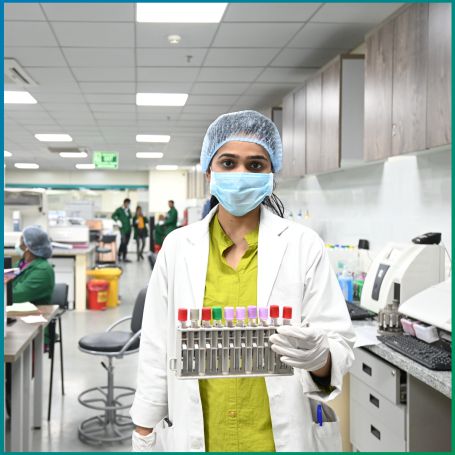
The Biopsy Medium Test is a diagnostic procedure used to assess and preserve tissue samples taken from the body during a biopsy.


A biopsy is a medical test where a small sample of tissue is removed from a patient for examination to diagnose or monitor diseases such as cancer, infections, or autoimmune conditions. Once the tissue is removed, it is placed in a specialized biopsy medium, which helps preserve the tissue’s structure and integrity, ensuring that it can be accurately analyzed under a microscope. This test involves evaluating the medium in which the tissue is stored, and ensuring the proper conditions for preservation, which can significantly affect the reliability of the test results.
The Biopsy Medium Test is designed to evaluate the effectiveness of the medium in preserving the tissue sample for diagnostic purposes. The test ensures that the tissue remains stable during transportation and storage, allowing for accurate and reliable results during histopathological examination, molecular testing, or other diagnostic procedures.
Key purposes of the Biopsy Medium Test include:
1] Preservation of Tissue Integrity: The biopsy medium must preserve the tissue in its natural state to ensure accurate evaluation under a microscope. The test checks if the medium used maintains the integrity of the tissue cells, preventing degradation or damage that could distort diagnostic results.
2] Ensuring Reliable Diagnosis: Since biopsy results are used to diagnose serious conditions such as cancer, infections, or autoimmune diseases, ensuring that the biopsy medium preserves the sample is essential for accurate diagnostic outcomes. The Biopsy Medium Test ensures that the tissue remains suitable for histopathological or molecular analysis.
3] Optimizing Storage Conditions: Tissue samples need to be transported to a laboratory for analysis, and during this process, they must be stored under the right conditions to prevent changes that could alter test results. The test assesses how well the biopsy medium maintains these conditions.
4] Supporting Specific Types of Analysis: Some diagnostic procedures require specific biopsy mediums to support tests such as immunohistochemistry or genetic analysis. The Biopsy Medium Test ensures that the selected medium is appropriate for the type of analysis needed and helps preserve the molecular or genetic characteristics of the tissue.
The Biopsy Medium Test is typically conducted in a laboratory setting. Once the tissue sample has been obtained from the patient through biopsy, it is placed in a chosen biopsy medium and transported to a laboratory for further evaluation. The laboratory will assess whether the tissue remains intact and viable for diagnostic testing.
1] Step 1: The tissue sample is obtained using a biopsy technique, such as needle aspiration, surgical biopsy, or endoscopy.
2] Step 2: The sample is placed in a selected biopsy medium, like formalin or saline, depending on the nature of the test to be performed.
3] Step 3: The tissue is transported to the laboratory, where the condition of the sample is evaluated. This may include examining the morphology of the tissue under a microscope, performing molecular tests, or testing for specific markers (such as cancer cells).
4] Step 4: The results are analyzed, and if any issues are found with the preservation of the sample, adjustments may be made, or a new sample may be requested.
At Diagnopein, we offer comprehensive, accurate, and timely diagnostic services, including the Biopsy Medium Test Pune. With our NABL-accredited labs, cutting-edge technology, and skilled technicians, you can be assured of reliable results every time. Get your results quickly, especially when time is crucial in detecting severe infections.
Competitive pricing without compromising on quality. Our team of experienced professionals ensures the test is conducted smoothly with minimal discomfort. We provide not just the Biopsy Medium Test results but insights into your health condition, helping you and your doctor make informed decisions about treatment. For more information call us at +91 9204 108108.
The Biopsy Medium Test itself is non-invasive and carries no risks since it involves the preservation and examination of tissue samples. However, the biopsy procedure to obtain the tissue sample may carry minor risks, such as bruising, infection, or discomfort at the biopsy site. These risks can be minimized by ensuring the procedure is done by a skilled medical professional.
Yes, the Biopsy Medium Test is useful in monitoring the progression of diseases like cancer, kidney disease, or autoimmune conditions. By ensuring that tissue samples are properly preserved, doctors can track disease progression and response to treatments more accurately.
Typically, no special preparation is needed for the Biopsy Medium Test itself. However, if you're undergoing a biopsy procedure, follow the instructions provided by your healthcare provider. This may include fasting or avoiding certain medications prior to the biopsy.
The test is important because it ensures that the tissue sample remains viable and intact during transport to a lab, preventing degradation. This helps to preserve the tissue for accurate evaluation under a microscope, leading to reliable diagnoses of conditions such as cancer, infections, or autoimmune diseases.